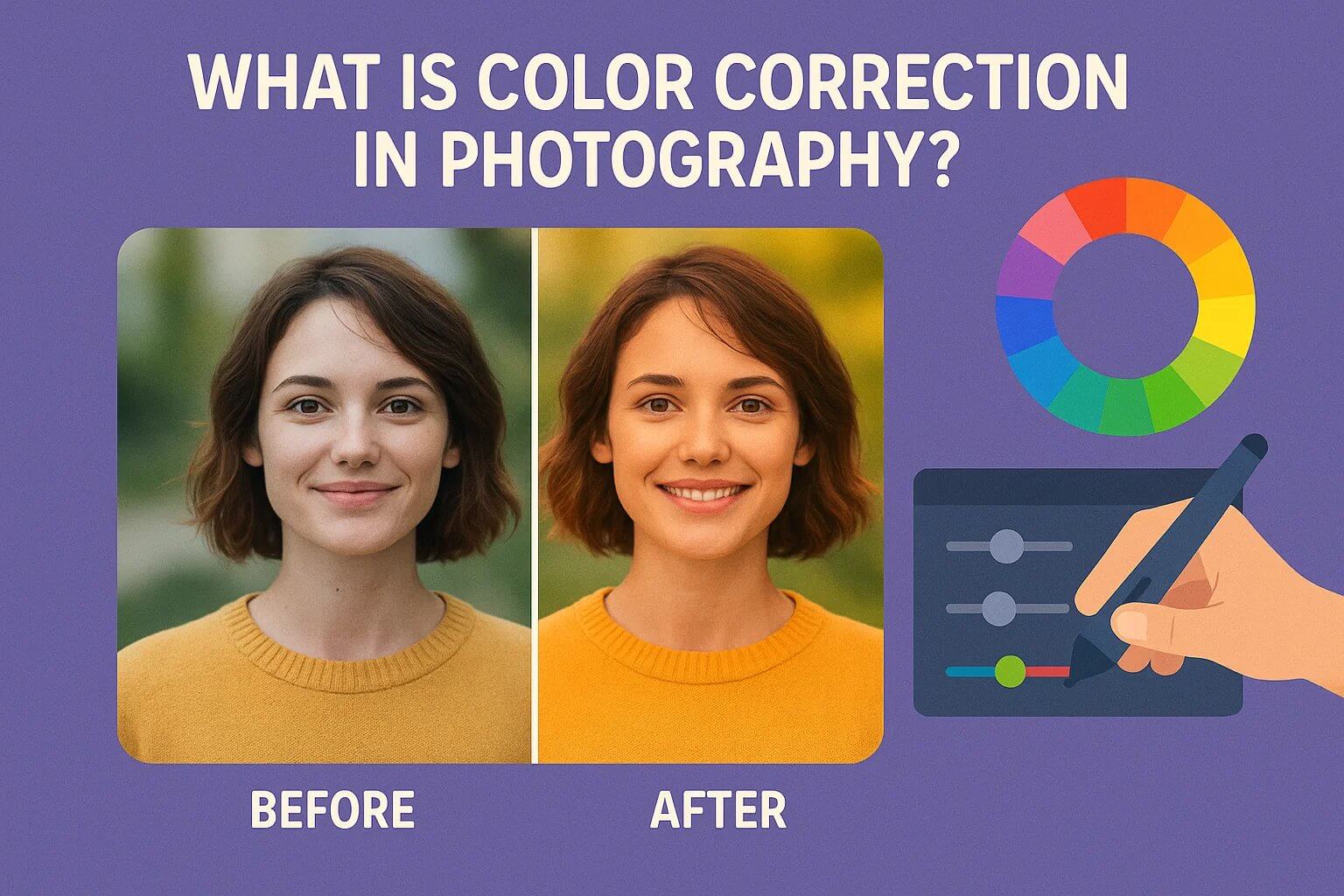What Is Color Correction in Photography?

Strong 8k brings an ultra-HD IPTV experience to your living room and your pocket.
In an age where we capture memories with just a tap and share them instantly, one critical detail often gets overlooked — the true color quality of our photos. This is where photo color correction comes in.
Whether you're a professional photographer, a small business owner, or someone printing vacation snapshots, color correction can be the key to transforming your images from average to exceptional. But what exactly is color correction, and why should you care? Let's break it down.
Understanding Photo Color Correction
Color correction is a post-processing technique that adjusts an image’s color balance, brightness, contrast, saturation, and exposure. The goal is simple: to ensure that the colors in your image appear natural, accurate, and consistent, whether viewed on a screen or in print.
It’s not just about vibrant colors — it's about true-to-life results. Even black-and-white images benefit from this process, as adjustments to contrast and density are crucial in those formats.
Why Photo Color Correction is Important
Here’s why color correction deserves a spot in your editing workflow or print order:
1. Fixes Lighting Issues
Ever taken a photo indoors and noticed a yellow or blue hue? Color correction fixes that by adjusting the white balance, restoring natural tones to your image.
2. Compensates for Device Differences
Different cameras, phones, and monitors display color differently. What looks great on your phone might print dull or off-color. Professional color correction bridges that gap, ensuring consistency across platforms.
3. Enhances Emotional Tone
Want a warm, cozy feel for a family photo or a cool, moody vibe for a cityscape? Color correction lets you fine-tune the tone and mood of an image.
4. Improves Print Results
Photos often appear darker or more saturated in print than they do on screen. With proper correction, you get prints that match your expectations.
5. Saves Time and Tools
Not everyone has access to advanced editing software. Color correction services allow you to skip expensive tools and get polished results effortlessly.
When Should You Use Color Correction?
You should consider color correction when:
- Your images have an unnatural tint or inconsistent lighting
- You're printing photos across various materials or finishes
- Your photos appear different in print than they do on-screen
- You want consistency across a photo series or branding assets
- You don’t have a color-calibrated monitor
Whether you're printing wall art, product shots, or photo albums, color correction ensures your visuals come out as intended — clean, vibrant, and professional.
Color Correction vs. Color Grading: Know the Difference
These terms are often confused, but they serve different purposes:
- Color Correction = Technical and neutral adjustments for accuracy
- Color Grading = Creative adjustments to evoke mood or style
Think of color correction as the foundation, and color grading as the artistic finish.
Who Benefits from Color Correction?
Almost everyone. Here’s a quick list:
01. Photographers
Ensure accurate skin tones, balanced lighting, and a timeless look, especially for events like weddings or portraits.
02. eCommerce Retailers
Accurate product colors reduce customer complaints and returns.
03. Designers & Artists
Maintain color consistency across digital and printed media.
04. Marketers
Make visuals pop and match brand aesthetics.
05. Content Creators
Keep your social media feed visually cohesive and high-quality.
Color Correction in Professional Photo Printing
When ordering prints, many professional labs offer color correction as an add-on service. Skilled technicians manually review each image, adjusting for color balance, exposure, and saturation — something automated filters can’t match.
Different print types, such as metal, canvas, or glossy photo paper, can also affect how colors appear. A corrected image ensures that vibrancy, warmth, and detail shine through on any medium.
The Bottom Line
Color correction isn’t just for professionals. It’s a smart, effective step that ensures your photos look just as beautiful in print as they do in your memories. From fixing common exposure issues to enhancing your photo’s mood, color correction can elevate your images — no fancy software or photography degree required.
Note: IndiBlogHub features both user-submitted and editorial content. We do not verify third-party contributions. Read our Disclaimer and Privacy Policyfor details.



